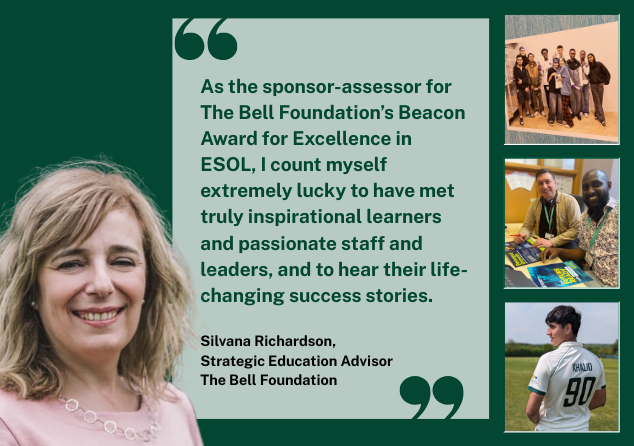
Celebrating excellence in ESOL provision
The application window for our 2025-26 Beacon Award for Excellence in ESOL is open until 10 September. Discover how our 2024-25 Beacon Award finalists are transforming the lives of learners through innovative and inclusive ways of teaching English for Speakers of Other Languages (ESOL) and find out more about how to apply to this year's award.

Changing lives and overcoming exclusion through language education
What's new?
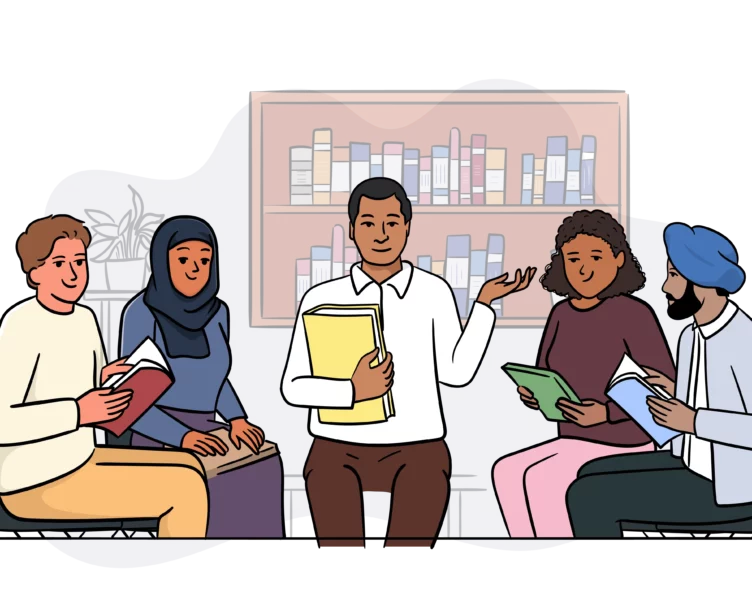
In this blog, Sarah Moodie, a trainer at the Foundation, outlines some tips for supporting learners who speak English as an Additional Language (EAL) with their 15+ education choices.

In this blog, we consider the key issues that policy makers need to consider to ensure that efforts to improve oracy in schools do not overlook the needs of EAL learners.

In this blog, trainer and subject expert, Tom Beakes, takes a look at how translanguaging leverages students’ home languages, dialects, and English to enhance learning in multilingual classrooms.
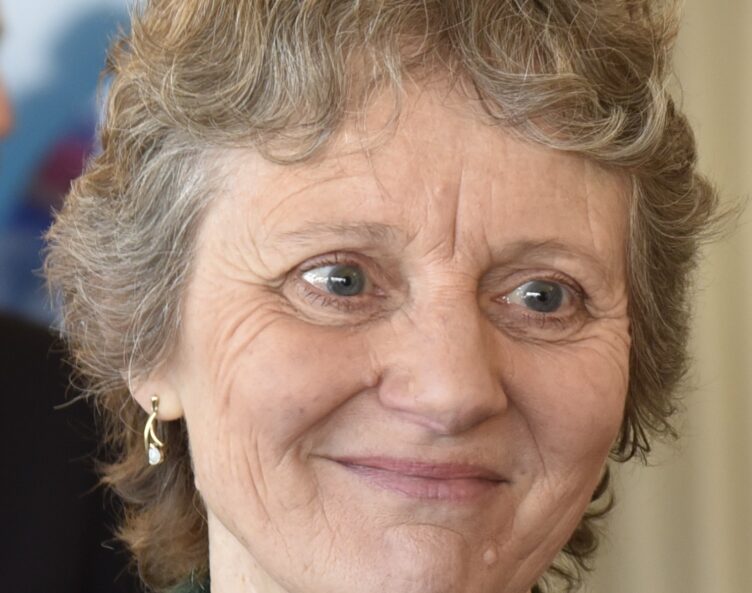
In this blog, Mary Osmaston from NATECLA reflects on the importance of ESOL provision and calls for colleges to put themselves forward for The Bell Foundation ESOL Beacon Award.

In this blog, we share some of the practical examples shared by practitioners in our Refugee Week webinar on how schools are helping to nurture communities in which refugee learners feel a real sense of belonging.

This blog highlights some of our top EAL articles, blogs, and guidance — perfect picks to include in your summer reading for 2025.

To mark Refugee Week 2025, we have prepared a variety of resources to highlight the importance of this year’s theme “Community as a Superpower”.
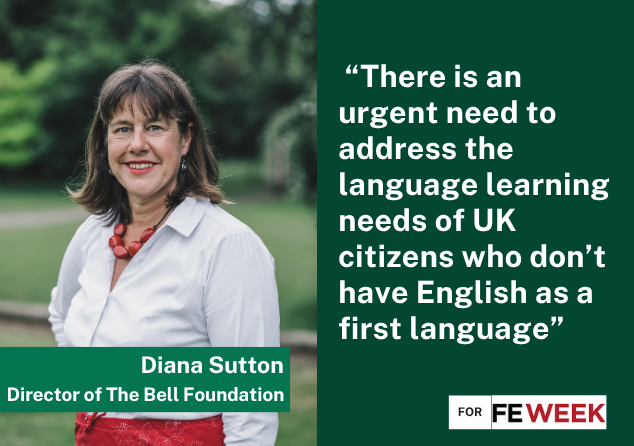
Our Director Diana Sutton writes in FE Week about the implications of Labour's Immigration White Paper on English as a Second Language (ESOL) provision, and how the new English language requirements ignore a deeper crisis in ESOL investment across the UK.
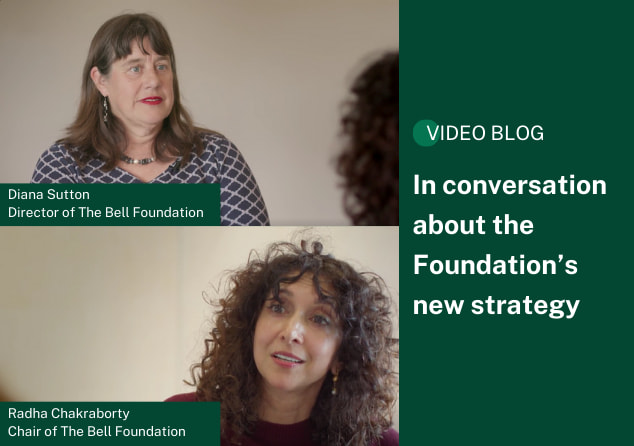
The Bell Foundation is embarking on an exciting new chapter. In this blog, Diana Sutton, Director of The Bell Foundation, sits down with Radha Chakraborty, Chair of the Board of Trustees, to share reflections on our work to date with schools, insights into the Foundation’s bold new 2025-2030 strategy, and why now is the right time to scale up our work with young people and adults who don’t have English as their first language.
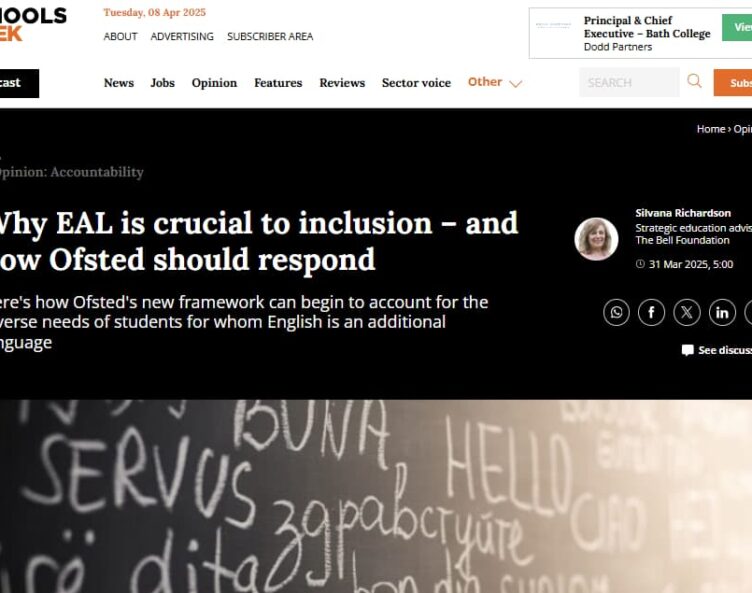
In this opinion piece for Schools Week*, our Strategic Education Advisor Silvana Richardson explains how Ofsted's new framework can begin to account for the diverse needs of students for whom English is an additional language.

The Bell Foundation is recruiting for a casual, home-based Online Trainer to join its growing, dynamic team. This is an exciting opportunity to support the delivery of high-quality training and resources for schools and teachers.

Are you passionate about language education and making a lasting impact on the lives of those who speak English as a Second or Additional Language? The Foundation is now looking for three new Trustees who can contribute to our work.


In England, over 20% of schoolchildren speak English as an Additional Language (EAL). So, how can teachers support these learners with unplanned language learning opportunities in the classroom? Tom Beakes advises.

Explore and download these practical guidance documents for parents providing key information to help understand the Welsh education system.
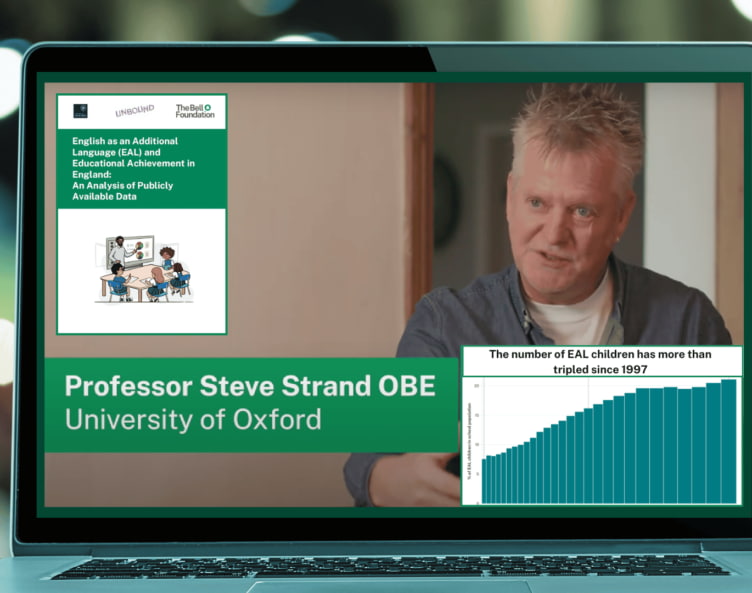
New evidence about the growing number of EAL children in English schools – and why measuring Proficiency in English is essential for schools to understand their attainment trajectory and unlock their potential – is out now. Explore the report, media coverage, our data story, and an interview with University of Oxford’s Professor Steve Strand OBE, one of the authors.

This blog explores how English for Speakers of Other Languages (ESOL) provision has the potential to unlock valuable skills, facilitate growth opportunities, and increase employment and earning potential for individuals who use English as a second language.

This blog explores the challenges associated with identifying pupils who speak English as an Additional Language (EAL) and who also have a special educational need or disability (SEND), and outlines strategies that educators can use to promptly identify these learners and address their needs.

Our latest article unpacks the new regulations on access arrangements in exams, provides practical guidance for schools, and shares strategies to help EAL learners gain the confidence and skills they need to succeed.
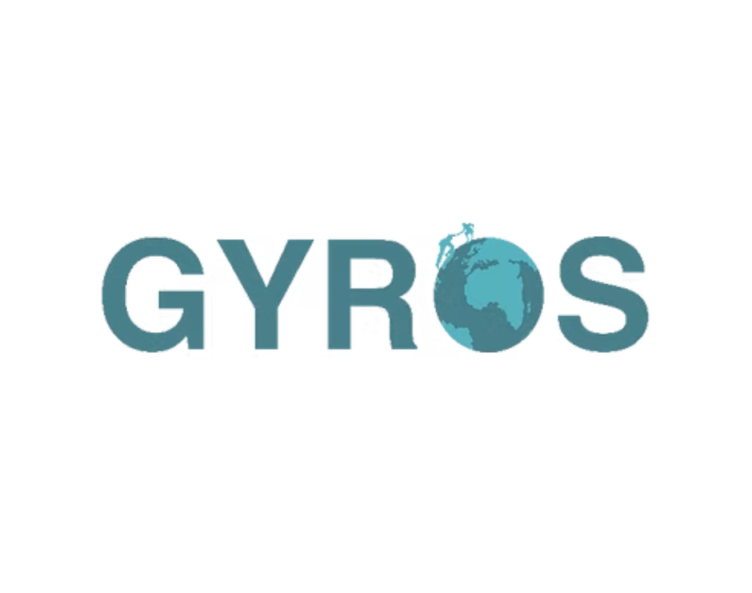
We spoke to Lauren Bouttell from GYROS (Great Yarmouth Refugee Outreach & Support), the latest partner of The Bell Foundation, to learn more about their organisation and their grant-funded project.
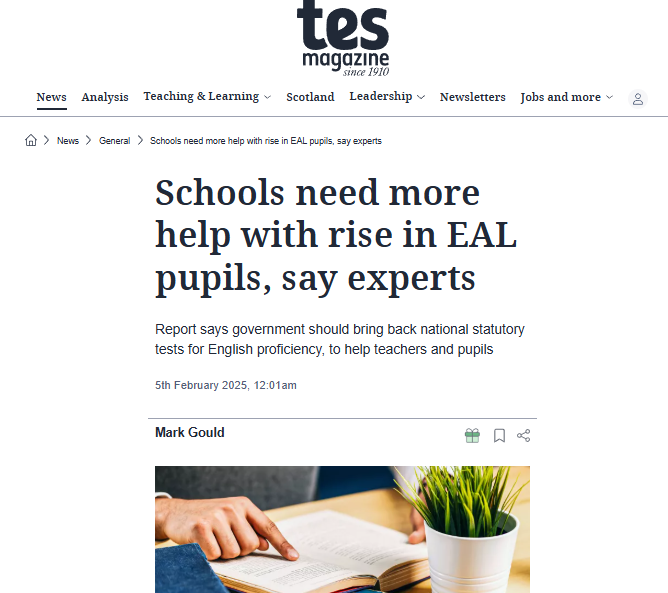
Report says government should bring back national statutory tests for English proficiency, to help teachers and pupils.
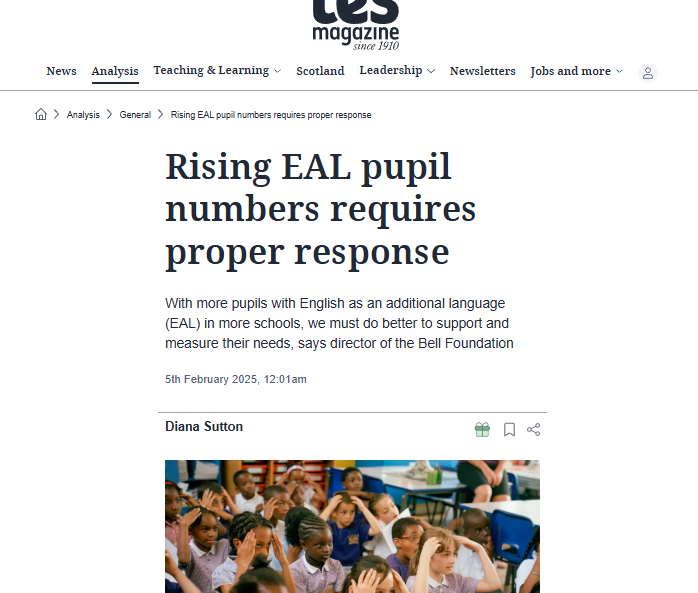
With more pupils with English as an Additional Language (EAL) in more schools, we must do better to support and measure their needs, says Director of the Bell Foundation.

The Bell Foundation is looking to recruit a Programme and Partnerships Officer. Working within our ESOL Programme, this role is responsible for developing and maintaining the partnerships and grant portfolio of the Foundation.

Our new report with the Association of Colleges (AoC) urges policy makers to learn from and work with devolved authorities on innovative approaches to ESOL provision which could realise the potential of thousands of people who speak English as a Second or Additional Language.
It also sets out a series of recommendations around a national framework, a role for employers, and funding. FE Week published an article highlighting key findings from this research.

We are seeking to recruit new Individual Licensed Practitioners (ILPs) in London, the South East and the East of England to run English as an Additional language (EAL) training. Apply by 7 February 2025.

Report by The Bell Foundation and the Association of Colleges (AoC) asserting that ESOL provision is crucial for government’s growth plans.
In this opinion piece for Schools Week, our Head of Training and Resources Katherine Solomon explains how a reflective curriculum, new approaches to assessment, and strengthening accountability as part of the curriculum review could play a key role in making EAL children thrive in school.

In this blog, we explore the importance of ESOL provision for plugging the skills gaps, and the vital actions that Skills England needs to take.

New evidence from our partners, Refugee Education UK (REUK), highlights why so many child and teenage refugees in the UK remain in education limbo — unable to secure a school place and often too young to access further education. The Guardian published an article based on this important report.

We have put together our calls for change and the evidence so that children and adults who speak English as a Second or Additional Language in the UK can achieve their full potential.

A practical guide for supporting EAL learners in early years settings.

In this blog, Diana Sutton, Director of the Foundation, outlines seven cost-effective and practical actions for the new Government to take to ensure learners and teachers receive the support they need.

In this blog Diana Sutton, Director of the Foundation, outlines five cost-effective and practical actions for the new Government to unlock the skills and potential of adults learning English for Speakers of Other Languages (ESOL).

In England and Wales, 5.1 million people speak English as a Second or Additional Language (ESL). For many, English for Speakers of Other Languages (ESOL) classes have been the key to a new language and a new life, unlocking their skills and opportunities. These are their stories.

Guidance to Support Educators in Planning Interventions for Learners who use English as an Additional Language (EAL).

In this blog, Diana Sutton, Director of the Foundation, takes a look at the key role Ofsted has to play in supporting effective EAL and ESOL provision.

Find out more about our review of the ESOL qualifications and curriculum, which provides evidence-informed recommendations to improve ESOL standards, qualifications, and methodology.

This guidance from The Bell Foundation provides a framework for schools to ensure that any EAL learners, who may also have a special educational need or disability (SEND), receive appropriate and effective support.
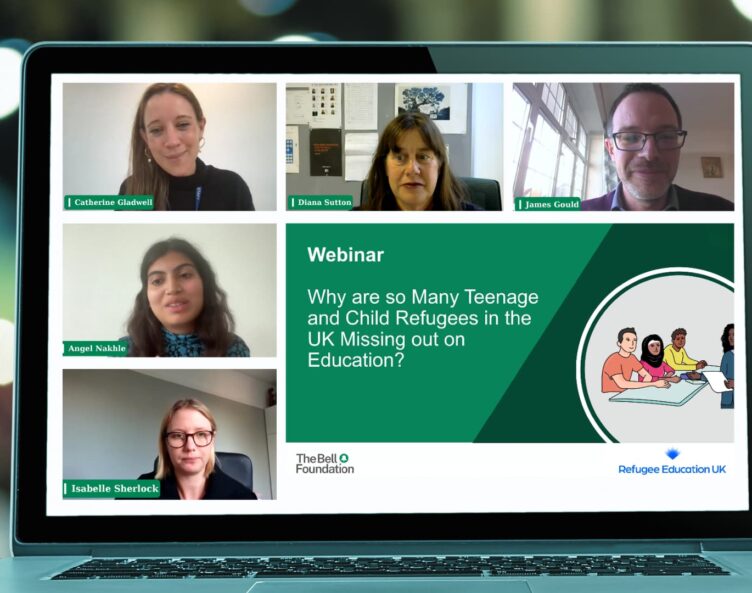
In this blog, Diana Sutton, Director of The Bell Foundation, explores brand new evidence on the experience of young refugees arriving later into the education system and what urgent policy changes are needed.

In this blog, Sarah Moodie, a trainer at the Foundation, outlines some tips for supporting learners who speak English as an Additional Language (EAL) with their 15+ education choices.

In this blog, we consider the key issues that policy makers need to consider to ensure that efforts to improve oracy in schools do not overlook the needs of EAL learners.

In this blog, trainer and subject expert, Tom Beakes, takes a look at how translanguaging leverages students’ home languages, dialects, and English to enhance learning in multilingual classrooms.

In this blog, Mary Osmaston from NATECLA reflects on the importance of ESOL provision and calls for colleges to put themselves forward for The Bell Foundation ESOL Beacon Award.

In this blog, we share some of the practical examples shared by practitioners in our Refugee Week webinar on how schools are helping to nurture communities in which refugee learners feel a real sense of belonging.

This blog highlights some of our top EAL articles, blogs, and guidance — perfect picks to include in your summer reading for 2025.
Why overcoming language barriers matters
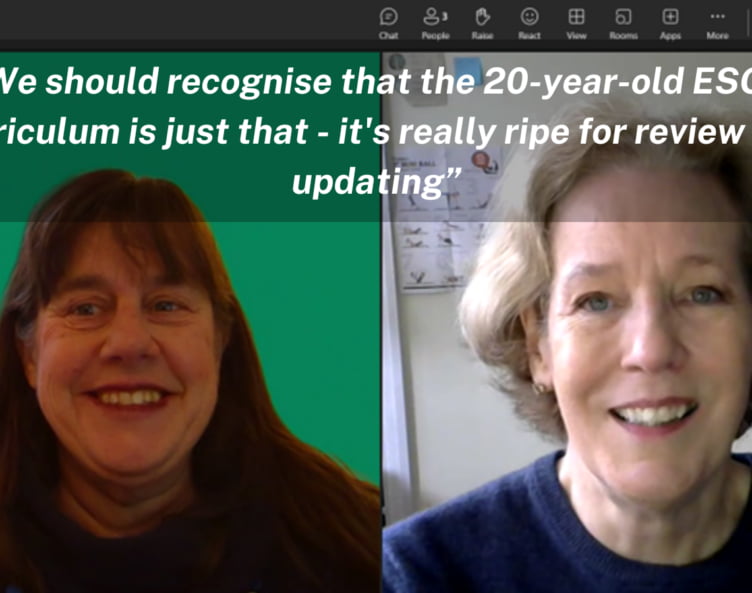
The Foundation’s Director, Diana Sutton, spoke to Dr Philida Schellekens to explore how ESOL could better meet the needs of learners.
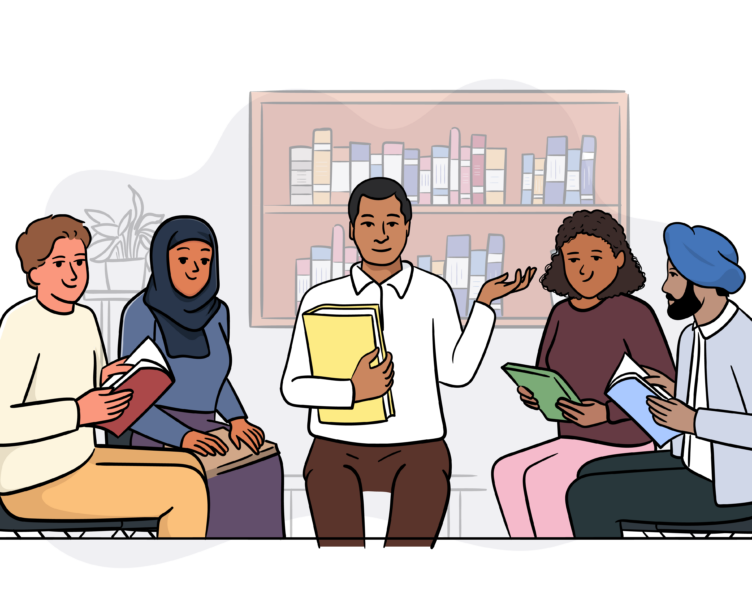
Rishan and Djafarou, from Kent Refugee Action Network (KRAN), spoke about their experiences since arriving in the UK and the importance of language support.

In this blog, we speak to Harry Jenkins (Senior Researcher) and Elly Townsend (Head of Research & Development) at High Trees about their work, funded by The Bell Foundation, to make ESOL provision more accessible and the exciting findings from their first course.

In this clip we provide an overview of the current challenges around EAL provision in schools, and we speak to experts and school leaders about their key asks for an incoming government.

In this blog, Giulia Clericetti from Refugee Education UK (REUK) shares how their new ESOL training course, developed in collaboration with The Bell Foundation, has supported volunteer mentors who work with refugees as part of their Educational Mentoring Programme.

In this blog, Andy, a participant in Refugee Action’s Pathways to Work programme, speaks to his mentor, Ross, about what they’ve learned from each other through the programme and how to go about job hunting in the UK.
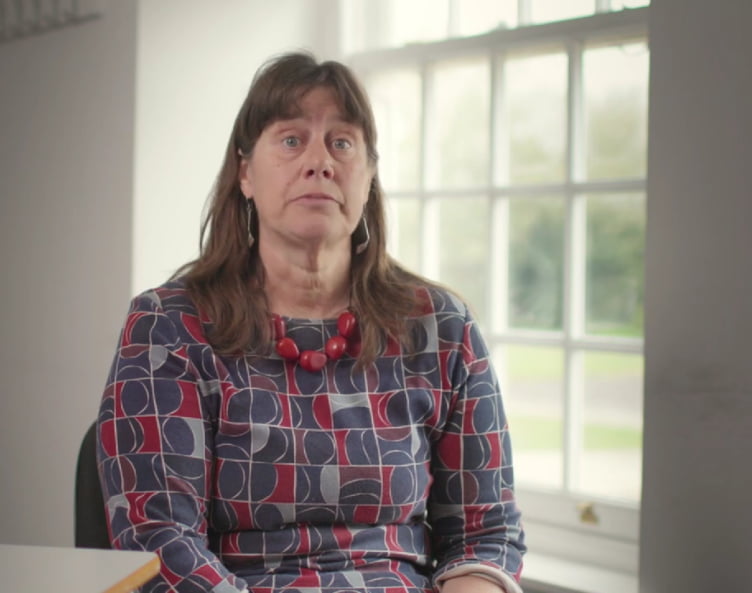
In this clip we provide an overview of the current challenges around English for Speakers of Other Languages (ESOL) provision, and we speak to experts and students about these challenges and their key asks for an incoming government.
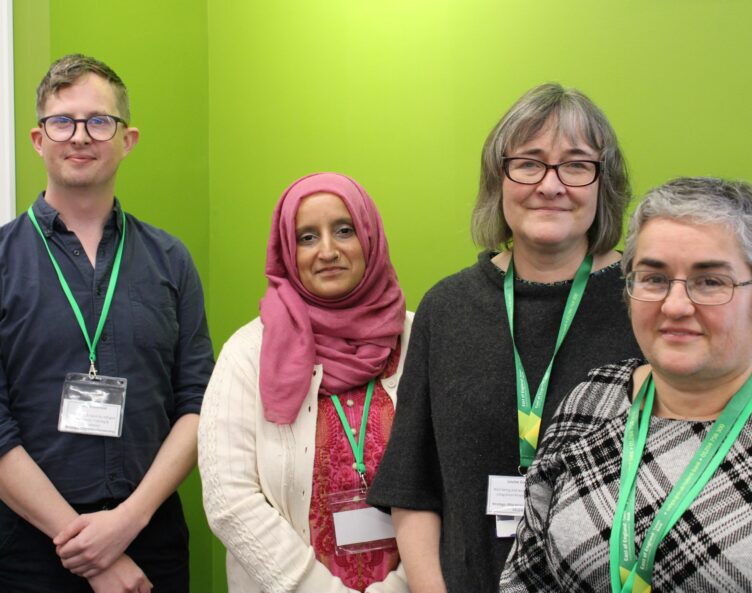
In this blog, we explore lessons from the programme run by the East of England Local Government Association’s Strategic Migration Partnership (EELGA SMP) to support refugees and asylum seekers with employment opportunities.

The Foundation’s Director, Diana Sutton, spoke to Dr Philida Schellekens to explore how ESOL could better meet the needs of learners.

Rishan and Djafarou, from Kent Refugee Action Network (KRAN), spoke about their experiences since arriving in the UK and the importance of language support.

In this blog, we speak to Harry Jenkins (Senior Researcher) and Elly Townsend (Head of Research & Development) at High Trees about their work, funded by The Bell Foundation, to make ESOL provision more accessible and the exciting findings from their first course.

In this clip we provide an overview of the current challenges around EAL provision in schools, and we speak to experts and school leaders about their key asks for an incoming government.

In this blog, Giulia Clericetti from Refugee Education UK (REUK) shares how their new ESOL training course, developed in collaboration with The Bell Foundation, has supported volunteer mentors who work with refugees as part of their Educational Mentoring Programme.

In this blog, Andy, a participant in Refugee Action’s Pathways to Work programme, speaks to his mentor, Ross, about what they’ve learned from each other through the programme and how to go about job hunting in the UK.